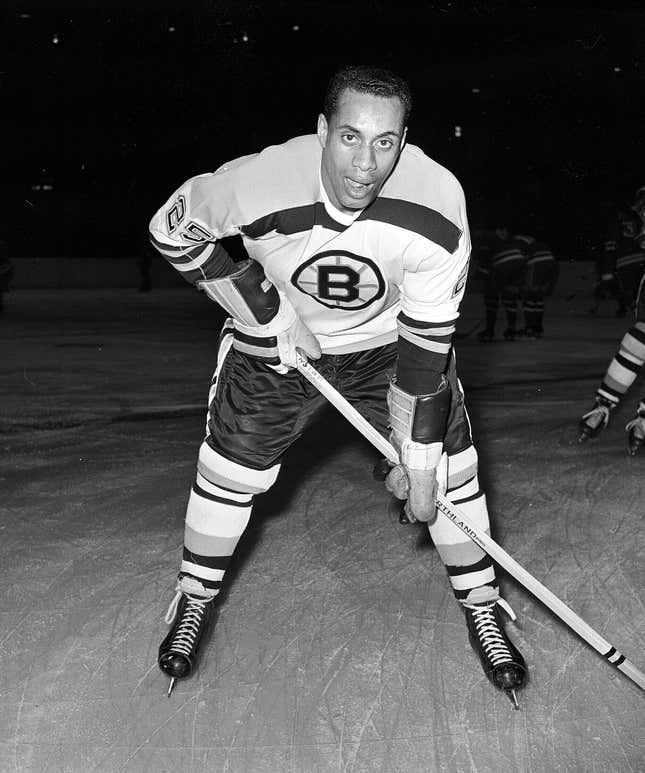
If there’s a sports figure who deserves flowers while he’s still here, it’s Willie O’Ree. He got a huge bouquet when the Boston Bruins finally retired his number 22 jersey on Tuesday, more than six decades after he broke hockey’s color barrier with the team.
Now he’s getting an even bigger arrangement from Congress, and the city of Boston is getting in on the act, too.
From the Boston Globe
A day after Willie O’Ree’s No. 22 was retired by the Bruins and raised to the rafters of TD Garden, the House of Representatives voted unanimously Wednesday to present him with another honor—the Congressional Gold Medal.
Both came in long-delayed recognition of his pathbreaking role as the first Black player in the National Hockey League. That historic moment took place more than six decades ago when the Bruins called up O’Ree from the minor leagues on Jan. 18, 1958.
A bipartisan group of lawmakers that includes Representative Ayanna Pressley of Boston sought to mark that achievement by awarding the 86-year-old O’Ree with Congress’ highest honor. The Senate passed the Willie O’Ree Congressional Gold Medal Act last summer and the House followed by approving the measure 426-0 on Wednesday. It now goes to President Biden for his expected signature.
The Globe also reported that Boston Mayor Michelle Wu made Tuesday “Willie O’Ree Day” in the city.
Though he’s less famous than his baseball a-alike Jackie Robinson, O’Ree may be the closest equivalent in any sport. Born in Canada, he integrated the National Hockey League in 1958, 11 years after Robinson integrated Major League Baseball. Like Robinson, and later James “Shack” Harris, who in the ‘70s became the first Black QB to start a season in the NFL, he fought racism both on the road and on home ice.
But he had one major difference: O’Ree played most of his pro hockey career secretly blind in one eye, choosing to hide the disability rather than be pushed out of the sport.
O’Ree’s career stats weren’t stratospheric. He played a total of 45 games between 1958 and 1961, scoring only four goals with four assists. He spent more time in the penalty box (26 minutes) than he had total points (14). It was only three years ago, after lobbying from many in the sport that the Hockey Hall of Fame inducted him. A documentary was produced about his road to the Hall of Fame.
After retiring, O’Ree put the sport on his back by becoming hockey’s ambassador to generations of Black kids who may have never played the sport. He’s credited with starting 26 different hockey programs which have helped 130,000 kids learn the sport, according to the Globe.

